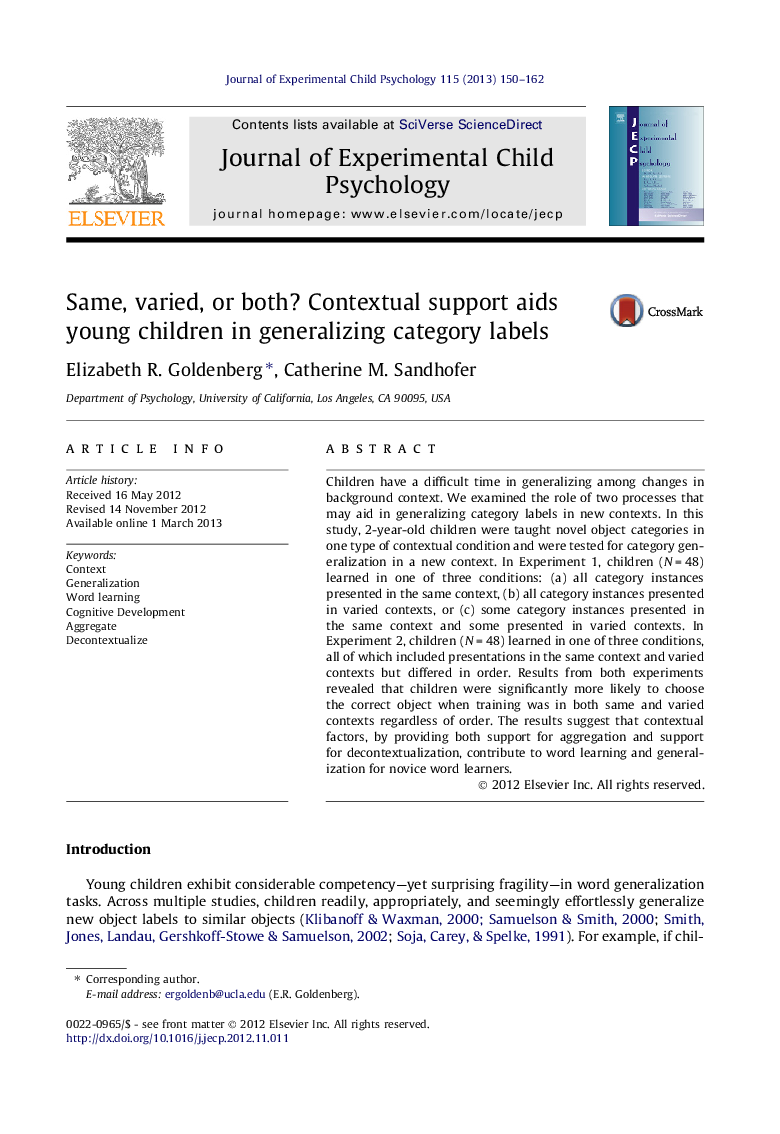| Article ID | Journal | Published Year | Pages | File Type |
|---|---|---|---|---|
| 918198 | Journal of Experimental Child Psychology | 2013 | 13 Pages |
Children have a difficult time in generalizing among changes in background context. We examined the role of two processes that may aid in generalizing category labels in new contexts. In this study, 2-year-old children were taught novel object categories in one type of contextual condition and were tested for category generalization in a new context. In Experiment 1, children (N = 48) learned in one of three conditions: (a) all category instances presented in the same context, (b) all category instances presented in varied contexts, or (c) some category instances presented in the same context and some presented in varied contexts. In Experiment 2, children (N = 48) learned in one of three conditions, all of which included presentations in the same context and varied contexts but differed in order. Results from both experiments revealed that children were significantly more likely to choose the correct object when training was in both same and varied contexts regardless of order. The results suggest that contextual factors, by providing both support for aggregation and support for decontextualization, contribute to word learning and generalization for novice word learners.
► We manipulated incidental background context as children learned category labels. ► With the same background context across presentations, children generalize at chance levels. ► With varied background context across presentations, children generalize at chance levels. ► With combinations of same and varied background context, generalization is highest.
